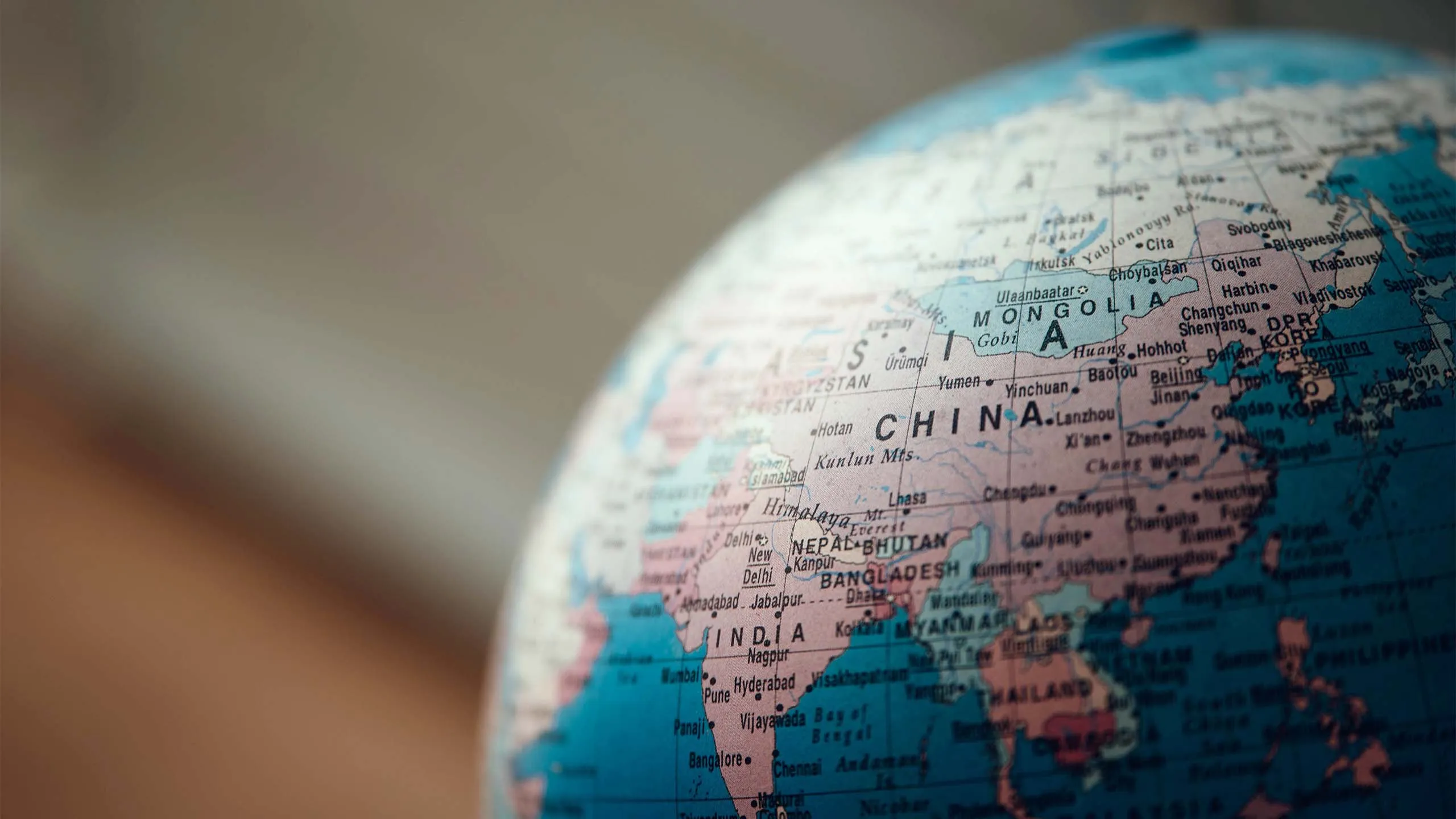The Strong IP Protections Afforded to Western Companies Operating in India

There are many working parts and considerations Western companies need to make when they think of moving operations internationally. Whether they want to start selling to customers around the globe, outsource work to offshore teams, or enter into a joint venture with an international organization, Western companies need to know that their intellectual property (IP) will not be compromised.
However, depending on the country they’re expanding into, they could face unique challenges and roadblocks when it comes to IP protection and enforcement.
At the moment, two of the countries that Western businesses frequently interact with on a global scale are India and China. But, the two countries could not be more different regarding the IP protections they offer Western companies, and how potential infractions are enforced and prosecuted.
In general, there are strong IP protections offered to Western companies that do business in India, especially compared to the lack of protections in other countries like China. Continue reading below to learn more about the IP landscape in India, how this differs from China, and what Western companies need to consider to best protect their intellectual property abroad.
What Does the Intellectual Property Landscape Look Like in India?
In the name of fostering foreign investment and innovation in their economy, India has continued to offer better IP protections to Western companies operating in the country. While the legislation hasn’t always been the simplest to navigate for Western companies, India has taken meaningful strides over the past decade to make the landscape more transparent and favorable to foreign players.
Similar to the US, the main types of IP protections that companies can get in India include:
- Patents: Legal protection offered to an inventor to exclude others from making, using, or selling the patented invention without the owner’s permission
- Trademarks: Recognition of a name, logo, or symbol that is distinct to one company, product, or service
- Copyrights: Grants exclusive rights to the creator or owner of an original work
- Trade Secrets: Protection of valuable or confidential business information that provides the owner with a unique business advantage
Let’s take a look at some of the most notable IP legislation that has been passed in India in recent decades to gain a better understanding of these protections.
- The Copyrights Act, 1957: This Act has been amended over the years to align with modern innovations and standards; however, the protections it offers are widespread and cover artistic endeavors such as painting, drawing, engraving, sculpting, photography, dramatic work, literary work, craftsmanship, computer programming, sound recording, musical works, and cinematography
- The Patents Act, 1970: Amended in 2005 to be compliant with the TRIPS agreement, the Act provides patent protection to new processes or products that are novel, inventive, and applicable to a given industry
- The Trade Marks Act, 1999: The Act is aligned with the international TRIPS agreement; helps to protect a brand from being illegally replicated through the registration of service marks, filing of multiclass applications, and trademark registration of 10 years, and it recognizes the concept of well-known marks and also protects domain names
- The Design Act, 2000: Aligned with the TRIPs agreement, the Act offers protections to original and aesthetic designs that have potential commercial applications and reflects the evolution of technology and economic advancements
To further illustrate their commitment to upholding IP protections for Western companies, India has entered into a number of international IP treaties and agreements.
- The Nice Agreement: Establishes a classification of goods and services in order to register trademarks and service marks
- The Vienna Agreement: Establishes a classification process for marks that contain figurative elements rather than a word or phrase
- The Locarno Agreement: Covers the classification of industrial designs
India entered into these multilateral agreements with the World Trade Organization in 2019 as a way to help designers and trademark owners obtain protections more easily. However, even before joining these treaties, India’s laws were already aligned with the Nice and Vienna agreements. Plus, in regard to trademark and copyright protection, India has designed its IP laws to adhere to the Berne Convention for Protection of Literary and Artistic Works, 1886, and the Universal Copyright Convention.
Additionally, India is part of the Geneva Convention for the Protection of Rights of Producers of Phonograms and is an active member of the World Intellectual Property Organization (WIPO) as well as the United Nations Educational, Scientific, and Cultural Organization (UNESCO).
All in all, the landscape for IP protection in India continues to become more robust. Given the various laws enacted and treaties that the country is a part of, their laws and regulations align neatly with the international standards set forth by the major organizations that Western countries and companies adhere to. Thus, many of the IP protections that Western businesses have come to enjoy in their home countries are applicable in India.
Benefits of IP Protections in India for Western Companies
There are countless reasons why companies would seek out IP protections when they are operating in India, just like when they’re at home. Here are some of the top benefits that Western companies enjoy from strong IP protections in India.
Better Confidence and Market Access
Any time a company enters a new market, like India, IP protection is a paramount priority. As such, the fact that there is such a strong IP landscape in India gives companies the confidence they need to enter the market and expand their operations in the country.
In turn, they can establish a strong presence in the country, build a loyal customer base, and protect their brand reputation in all jurisdictions where they operate. India is now the most populated country in the world; therefore, gaining a presence in this sizable region provides massive potential to Western companies. So, they can do so knowing their IP will be protected.
Encourages Innovation and Investment in Research & Development
The IP protections that are present in India help companies safeguard their innovative ideas, creative works, inventions, and technologies through patents, trademarks, copyrights, and trade secrets.
Thus, companies are able to protect and retain their competitive advantage by preventing others from misappropriating or exploiting their IP. This is mutually beneficial both for the companies and the Indian economy, as it encourages innovation, fosters creativity, and incentivizes companies to invest in research and development in the country.
Prevents IP Infringement and Counterfeit Production
Companies need to know that they can obtain copyrights, trademarks, and patents in international markets and that these will be upheld to prevent the unauthorized use or infringement of their IP.
Thus, without adequate IP protection, companies could face financial losses, damaged brand reputation, and loss of market share if an unauthorized party copies their IP and distributes it as their own.
This is the case in India, which is one of the many advantages that it offers in regard to IP protection. Plus, Western companies can be confident that the perpetrator will face legal recourse in the case of an infringement. This is further supported by India’s participation in international IP treaties, which makes cross-border enforcement much easier.
For instance, if someone is found guilty of patent infringement in India, they can be punished by imprisonment of up to three years, and/or fined. On the civil side, patent holders can pursue damages, injunctions, and account of profits for further remedy.
Similarly, cases of copyright infringement are punishable by a minimum fine of Rs. 50,000, in addition to imprisonment of 6 months to three years.
More Opportunities for Collaboration and Licensing Agreements
Lastly, the strong IP protections that Western companies are afforded in India provide them with more opportunities for expansion. More specifically, they gain the confidence to license their technology, patents, and trademarks to other organizations without fearing that their IP will be stolen or used without their permission.
Not to mention, having a more robust IP portfolio makes the company more attractive to investors, potential business partners, and others who see high value in a company’s IP assets.
In return, making these licensing agreements will help the company tap into additional revenue streams, form strategic partnerships, and further supports their expansion into new markets, as we briefly mentioned above.

How the Intellectual Property Landscape Differs in China
As we briefly mentioned above, the IP protections that Western companies find in India are less robust in China. In fact, the protection of IP in China has been a longstanding concern among Western businesses that have considered entering or have entered the market.
Though there is legislation present in Chinese law to protect IP, most of the concern surrounds how reliably or consistently these laws are enforced. So, even as the country makes more efforts to align their laws with international standards, many remain wary of their uneven enforcement and structural roadblocks that get in the way of legal recourse.
Just a few months ago, the International Trade Administration (ITA) noted:
“Intellectual property (IP) infringement and theft is widespread in China, and firms operating there must take steps to protect and enforce their IP rights.”
To illustrate this issue further, here are some of the main challenges and weaknesses in China’s IP protection system.
Difficulties in Protecting Trade Secrets
Western companies often face challenges in China when trying to protect their trade secrets. Thus, this remains a large concern to companies and has made them wary of potential industrial espionage or betrayal of foreign staff.
Trade secrets are an important tool that businesses use to retain their competitive edge. So, operating in countries where trade secrets are more vulnerable poses a risk to both established companies and startups.
Uneven Application of the Law
Even though China has been making attempts to improve their IP landscape in recent years, enforcement of these laws is often a challenge and is likely the most pressing issue the Western companies still face.
As we mentioned above, counterfeiting, piracy, and infringement are widespread issues across the nation, especially for industries like technology, pharmaceuticals, and consumer goods. The various interpretations of IP laws across China and their uneven enforcement across different regions of the country remain principal challenges to Western companies that operate there.
Limited Legal Recourse
In many instances, Western companies have struggled with the lack of available legal remedies they can employ in the case of IP infringement in China. Plus, some have noted that these remedies do not always seem to be effective or appropriate to the crime.
Thus, obtaining adequate damages and injunctions can be difficult in China, and the possible penalties that criminals face for IP infringements are typically not substantial enough to act as a deterrent in future instances.
Procedural Barriers
Companies may notice structural barriers both to file for IP protections like patents, trademarks, and copyrights in China, and to pursue legal recourse in the case of an infringement. These roadblocks lead to serious uncertainties for IP holders in China.
In the past, the Chinese IP protection system has been known to be inefficient and full of inconsistencies in how decisions are made. Further delays and backlogs can make any step of the process a hindrance to companies and impact their ability to effectively resolve IP disputes.

Comparing IP Protections in India and China
As you may be able to see, there are clearly contrasting legal frameworks and enforcement mechanisms between the two countries that make India more favorable to Western IP.
Across the board, there is a more consistent and straightforward framework in India, while China’s is less reliable and more prone to inconsistencies. Thus, it can be challenging to understand exactly what the legal framework in China is regarding IP protection, and what companies need to do in order to be afforded these protections and pursue legal action when there’s been an infringement.
Again, IP protections in China are often enforced unevenly depending on the region, officials’ interpretation, and administrative red tape and inefficiencies. In India, the possible punishments for IP infringement cases are clearly laid out and are more consistently enforced from case to case given their participation in international trade treaties.
Undoubtedly, these differences in IP frameworks impact Western companies’ decisions regarding where they choose to operate internationally and where they are actively making investments. Currently, it appears as if companies are more confident to make investments in the Indian economy. Among other geopolitical reasons for doing so, they know their IP will be protected and not stolen out from underneath them.
For instance, in 2022, the world’s largest investment banks brought in more dealmaking fees from India than China for the first time in history, according to the Financial Times. In recent years, more companies are pulling investments out of China, providing further opportunities in India, in part due to its favorable IP landscape.
Recommendations for Western Companies
Moving any portion of operations internationally poses challenges for Western companies. Especially when it comes to protecting IP and the potential risks associated with it becoming compromised, companies need to stay vigilant and do their due diligence before they make any strategic moves.
Again, the longstanding issues regarding IP protection in China remain a problem to this day. China has long been known for its association with the counterfeit market and reverse engineering of products and processes to reveal protected trade secrets and undermine patents and copyrights.
In the current day, India does offer more robust and reliable IP protections; however, companies still need to do their part to mitigate possible IP risks in any international market they enter. It’s important to consult with legal experts from the beginning to engage in proper IP management before engaging internationally.
Concluding Thoughts on International IP Protections
Western companies that are looking to expand internationally need to consider the IP protections they’ll be awarded in various countries. Given the ongoing roadblocks in countries like China, India’s comprehensive IP landscape shines through as a destination for opportunity and investment for Western businesses.
The legal, geopolitical, and economic landscape will certainly evolve over the coming years. But, the current strong legal framework for IP protection gives Western companies a solid foundation for expansion in India. Knowing that there’s a reliable and transparent mechanism in place to safeguard their inventions, brands, and creative works, Western companies will be more confident bringing their business to India than China.
If you want to learn more about outsourcing part of your workforce to India with Assivo, click here to get started.
About Assivo
Assivo is an execution partner specializing in structured delivery across operations, finance, and data workflows. We build managed teams that run seamlessly and consistently—so leaders can focus on growth, not supervision.
Build a System You Can Trust
Let’s align in 2–4 weeks. You’ll stop managing execution shortly after.